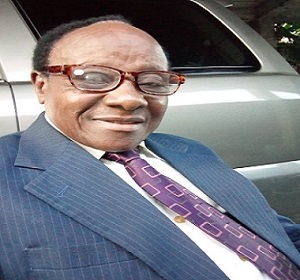
Hello! I'm
Professor
Ohiri Innocent
Author, Writer, Actor, LecturerOne Man. One Mission. Can He Go Beyond?One Man. One Mission. Can He Go Beyond?
Orality and the Theatricality of African
Festivals: A Study of the Owu-Oma Festival.
Innocent Chinyere Ohiri
Introduction
Africa is endowed with a unique cultural heritage which is often expressed through her numerous traditional festivals. These festivals are not theatre but contain a preponderance of theatre which is strengthened through the involvement and use of theatrical elements. Unfortunately, this practice of strengthening theatre which is referred to in this study as the “enhancement of the theatricality of traditional festivals” is not a common one with most of our contemporary directors who, because of their western orientation and religion, do not fully appreciate the utility of these theatrical elements. These elements include oral dialogue, songs, dances and masks. Driven by this orientation, they often attempt to either eliminate completely or substitute these elements with western spectacles.
They attempt this with the erroneous belief that these elements are either meaningless, obsolete or demonic. One of the ways to correct this mistaken notion and call them to order is by explaining to them how the owners of the festivals meaningfully use these elements to enhance the theatrical standards and contents of the festivals. This is what this study does with the aim of portraying the ingenuity and artistry that recommend the use of these elements. It does so through a research into the use of these elements in the Owu-Oma Festival of Orodo Mbaitoli. It also investigates and identifies the problems of using the elements and finally recommends solutions to the problems.
African traditional festivals showcase a multiplicity of performances. Most of these performances have been argued to be mere rituals, pre-drama, or religious acts that do not qualify as drama or theatre. In the opinion of Mahood, African festivals are mere “pre-drama”, a form of art intermediate between religion and drama, a raw form (like crude oil) which has to be purified before it can be converted to use (cited in Ogunba and Irele 1978:9).
In support of Mahood’s opinion, it has been observed that the drama in traditional African festival performances (for example, the Igbo ones) appear subsumed in the ritual and developed in the same manner that Greek drama did, In the words of Oyin Ogunba.
The argument rather, is whether the element of drama in these performances is such as to warrant their classification as a kind of drama rather than the imprecise and sometimes misleading term ritual (Oyin Ogunba 1978:11).
African festivals can qualify as drama, but more than this is the fact that the festivals of today have been grossly influenced by the all-pervading and predominant Christian and Muslim religions. Their influences have made majority of African festivals to yield their ritual contents and become mere entertainment. The priests or native doctors in most of them are no longer native doctors but artistes who have rehearsed and internalized the incantations (dialogue), movements and gestures of these “sacred” ones and are on stage to present them for entertainment. In addition to this is the fact that because what is performed is no longer determined by religious tenets, various manipulations and additions have been made in the nature and content of the festivals thereby strengthening this change from ritual to mere entertainment that is enhanced by role play.